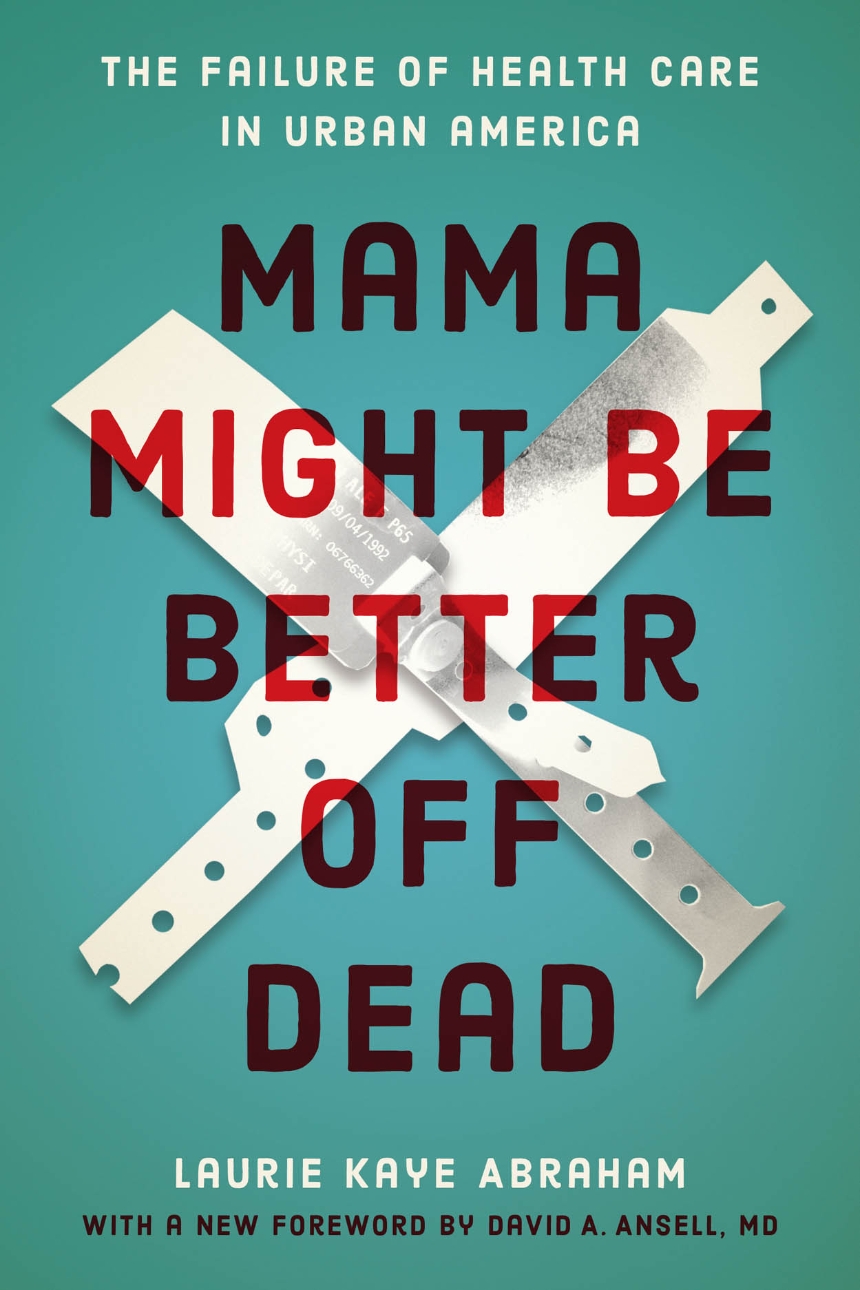Mama Might Be Better Off Dead
The Failure of Health Care in Urban America
9780226623702
9780226623849
Mama Might Be Better Off Dead
The Failure of Health Care in Urban America
North Lawndale, a neighborhood that lies in the shadows of Chicago’s Loop, is surrounded by some of the city’s finest medical facilities, Yet, it is one of the sickest, most medically underserved communities in the country.
Mama Might Be Better Off Dead immerses readers in the lives of four generations of a poor, African-American family in the neighborhood, who are beset with the devastating illnesses that are all too common in America’s inner-cities. Headed by Jackie Banes, who oversees the care of a diabetic grandmother, a husband on kidney dialysis, an ailing father, and three children, the Banes family contends with countless medical crises. From visits to emergency rooms and dialysis units, to trials with home care, to struggles for Medicaid eligibility, Laurie Kaye Abraham chronicles their access—or more often, lack thereof—to medical care. Told sympathetically but without sentimentality, their story reveals an inadequate health care system that is further undermined by the direct and indirect effects of poverty.
Both disturbing and illuminating, Mama Might Be Better Off Dead is an unsettling, profound look at the human face of health care in America. Published to great acclaim in 1993, the book in this new edition includes an incisive foreword by David Ansell, a physician who worked at Mt. Sinai Hospital, where much of the Banes family’s narrative unfolds.
Mama Might Be Better Off Dead immerses readers in the lives of four generations of a poor, African-American family in the neighborhood, who are beset with the devastating illnesses that are all too common in America’s inner-cities. Headed by Jackie Banes, who oversees the care of a diabetic grandmother, a husband on kidney dialysis, an ailing father, and three children, the Banes family contends with countless medical crises. From visits to emergency rooms and dialysis units, to trials with home care, to struggles for Medicaid eligibility, Laurie Kaye Abraham chronicles their access—or more often, lack thereof—to medical care. Told sympathetically but without sentimentality, their story reveals an inadequate health care system that is further undermined by the direct and indirect effects of poverty.
Both disturbing and illuminating, Mama Might Be Better Off Dead is an unsettling, profound look at the human face of health care in America. Published to great acclaim in 1993, the book in this new edition includes an incisive foreword by David Ansell, a physician who worked at Mt. Sinai Hospital, where much of the Banes family’s narrative unfolds.
Read the introduction. An audiobook version is available.
304 pages | 6 x 9 | © 1994
Anthropology: Cultural and Social Anthropology
Economics and Business: Health Economics
Political Science: Public Policy, Race and Politics, Urban Politics
Sociology: Medical Sociology, Urban and Rural Sociology
Reviews
Table of Contents
Preface
Acknowledgments
Introduction
1: "Where crowded humanity suffers and sickens": The Banes family and their
neighborhood
2: The rigors of kidney dialysis for Robert Banes
3: Gaps in government insurance for Mrs. Jackson
4: Fitful primary care fails Mrs. Jackson
5: Mrs. Jackson’s melancholy
6: The inner-city emergency room
7: One hospital’s story: How treating the poor is "bad" for business
8: Who’s responsible for Tommy Markhams’s health?
9: Jackie Banes’s "patient"
10: Empty promises: Preventive care for the Banes children
11: Robert Banes plays the transplant game
12: The Banes family and white doctors
13: Life-sustaining technology
14: Amazing grace
Epilogue
Appendix
Notes
Acknowledgments
Introduction
1: "Where crowded humanity suffers and sickens": The Banes family and their
neighborhood
2: The rigors of kidney dialysis for Robert Banes
3: Gaps in government insurance for Mrs. Jackson
4: Fitful primary care fails Mrs. Jackson
5: Mrs. Jackson’s melancholy
6: The inner-city emergency room
7: One hospital’s story: How treating the poor is "bad" for business
8: Who’s responsible for Tommy Markhams’s health?
9: Jackie Banes’s "patient"
10: Empty promises: Preventive care for the Banes children
11: Robert Banes plays the transplant game
12: The Banes family and white doctors
13: Life-sustaining technology
14: Amazing grace
Epilogue
Appendix
Notes
